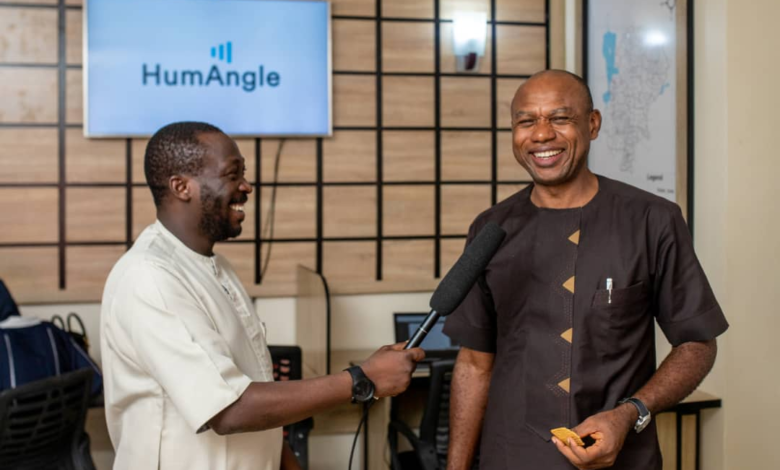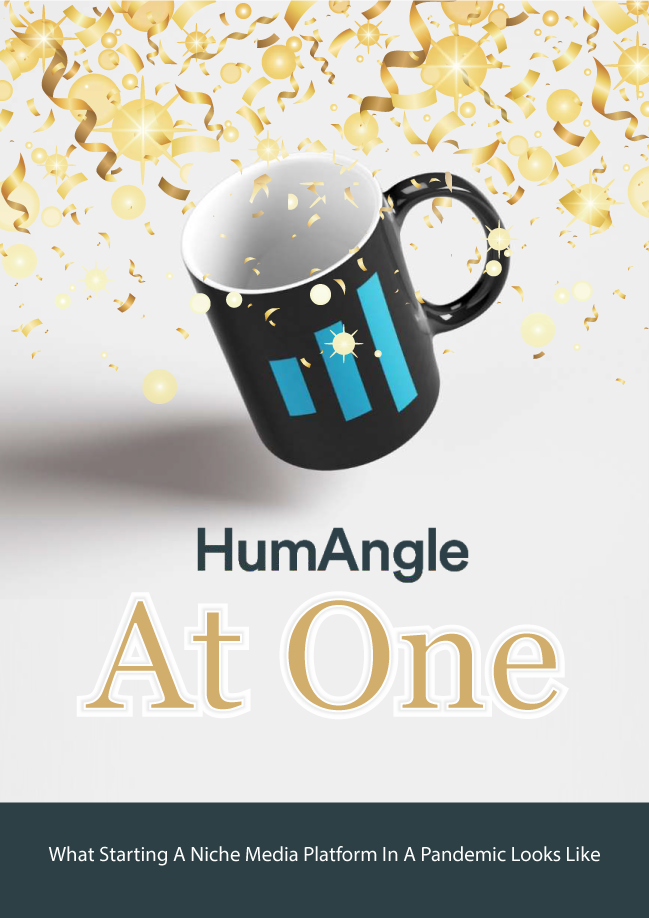The HumAngle Journey: Passing Through The Eye Of The Needle

At 3.10 pm on March 3, 2020, we uploaded the first content on the HumAngle domain portal announcing the birth of the “African Daily Newspaper reporting insecurity and promoting humanitarian values.” Two weeks afterwards, Nigeria announced a lockdown as a result of the COVID-19 pandemic. We did not see this coming. Nobody did. Among the editorial staff with us, some were greenhorns with no prior Newsroom experience, and we were only just drawing up in-house editorial training modules before the lockdown was announced.
We quickly altered our operating system and structures at unanticipated heavy overhead costs. Despite the lockdown, we had to fund reporters’ presence and follow-ups in fields across the nation, particularly in the Northeast and Northwest crisis-strewn regions. The environment of relevant news occurrences became more fluid, complicated and required special skills and nuances. We designed and stepped up our in-house mentoring responsibilities for our young newsroom Turks to swiftly cater to the observed gaps.
Our experience since early 2020 has been like the proverbial Camel passing through the eye of a needle. Without ready funds and no financier bankrolling the journey, we became accustomed to the brutal torrents and fierce lashes of the weather from the onset.
Although the federal government has taken steps in improving the ease of doing business in the country and offered relief to certain sectors affected by the COVID-19 pandemic, it is difficult to see how much entrepreneurs and start-ups with special needs in the media space have benefited from this.
The ease of doing business policy hardly recognises our energy and dedication among its list of those active in the investment flow within the national economy. In fact, in 2020, the push within government circles to tighten the noose and strangulate digital media operators under what is referred to as the social media regulation got more impetus. Notably, one of the provisions of the recently amended Companies and Allied Matters Act 2020 is section 839 (1) that empowers the government’s regulatory body to “suspend the trustees of an association and appoint an interim manager or managers to manage the affairs of an association” where it reasonably believes that it is acting in “public interest.”
But for us, there were arguably even bigger problems dogging our steps. Perhaps for the reason of the field of focus of our reporting, powerful institutions with an agenda were already putting us under their watchlist. Our reporting strategy that prioritises a bottom-up approach to news rendition and significantly emphasises the amplification of victims’ voices was quickly criticised by officials and tagged “doomsday reporting.”
It did not stop there. Overt pressures were mounting daily to get our platform to forfeit our thematic emblem of reporting insecurity and humanitarian issues to “focus on general interest news like other newspapers,” turning members of the team into targets of official and unofficial threats and social media trolling. We have also been victims of careless narratives promoted by obscure and mainstream media platforms in reaction to our critical publications.
A different page was soon opened in the sustained harassment of our team as some hirelings took turns to issue statements and address the press to principally criminalise our work and threaten our team members. As we managed the attendant trauma associated with these, the terrorists in the Northeast issued threats against our team and platform. Abubakar Shekau, on two occasions, issued verbal warnings against HumAngle and the team’s lead. But we continued to press on.
One of the challenges we encountered in the past year was running news and editorial content without adverts. Loss of revenue opportunities are painful, and particularly so for start-ups without some measure of sustainable funding. But it was not all gloom as the Open Society Initiative for West Africa (OSIWA), and African Transitional Justice Legacy Fund (ATJLF) saw our quality early enough and extended hands of partnership with project grant support.
Thankfully, HumAngle also received various forms of support from the MacArthur Foundation which, together with a US-based private foundation, funds the ATJLF. The Foundation has similarly provided assistance through the Premium Times Centre for Investigative Journalism (PTCIJ) and OSIWA’s Civic Defence Fund.
We are excited to launch a solutions journalism desk that will not only explore solutions in conflict, climate change, out of school children, maternal health etc. but look inwards on sustainability drive and how newsrooms can best relate to donors without being bogged down by so much paperwork that often distracts journalists from their core mandate.
We are picking our steps steadily and painstakingly across the regional territories. Our reports are helping to gradually lift the veil that has covered conflict issues in West, Central Africa, and the Sahel. Many of our readers thank us for assisting them in understanding the nuances better.
Our focus areas also include all forms of humanitarian crisis, environmental disasters, developmental interventions, human rights, and the intersection between these and the average person’s experiences on the street. In addressing these grand issues, it is easy to overlook the person who is directly affected, but our mandate is to amplify the voices of these people.
Continue reading …
Support Our Journalism
There are millions of ordinary people affected by conflict in Africa whose stories are missing in the mainstream media. HumAngle is determined to tell those challenging and under-reported stories, hoping that the people impacted by these conflicts will find the safety and security they deserve.
To ensure that we continue to provide public service coverage, we have a small favour to ask you. We want you to be part of our journalistic endeavour by contributing a token to us.
Your donation will further promote a robust, free, and independent media.
Donate HereStay Closer To The Stories That Matter





